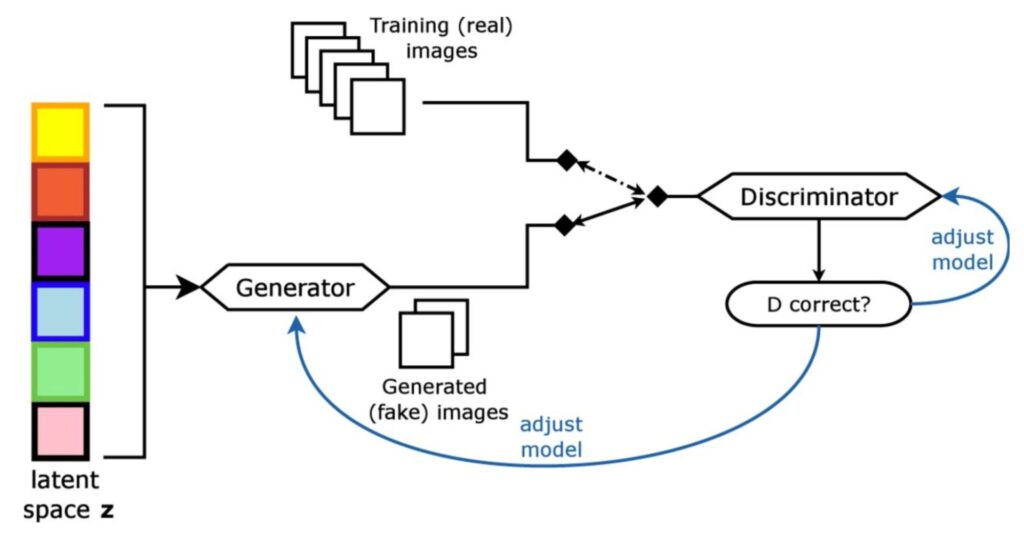In today’s complex world, game theory offers a powerful lens to understand and navigate strategic interactions. From the competitive arena of business to the intricacies of political negotiations and even daily decision-making, strategic decision theory provides crucial insights into how we make choices and interact with others. So, what exactly is game theory, and why is it so relevant? In this article, we’ll explore the concept of strategic decision theory, illustrate its significance across various domains, and show how it can enhance your strategic thinking and decision-making skills.

What is Game Theory?
Defining Game Theory
Game theory is a mathematical framework designed to analyze situations where multiple players make decisions that affect one another. Essentially, it studies strategic interactions where each participant’s outcome depends on the choices made by others. By using strategic decision theory, we can predict and understand how rational agents behave in both competitive and cooperative environments.
Post-Workout Pain: What DOMS Really Means and How to Ease It
Key Concepts in Game Theory
To grasp game theory, it’s essential to understand some fundamental concepts:
1. Players
Players are the decision-makers in a game. They can be individuals, organizations, or even nations, each with their own objectives and strategies. For instance, in a business setting, each company is a player making decisions based on its goals.
2. Strategies
Strategies are the plans or actions that players can choose from. Each strategy impacts the outcome of the game and is selected based on the expected decisions of other players. Therefore, the choice of strategy is often influenced by predictions of others’ moves.
3. Payoffs
Payoffs represent the outcomes or rewards that players receive based on their chosen strategies and those of others. These rewards can be financial gains, utility, or any measurable benefit, depending on the context of the game.
4. Equilibrium
An equilibrium is a state where no player can benefit by unilaterally changing their strategy. The most famous equilibrium is the Nash Equilibrium, where each player’s strategy is optimal, given the strategies of the other players.
Applications of Game Theory in the Modern World
1. Economics and Business
Strategic Business Decisions
In the realms of economics and business, game theory assists companies in making strategic decisions such as pricing, product launches, and market competition. For example, businesses use strategic decision theory to anticipate competitors’ reactions to pricing changes or new product offerings, thereby crafting more effective strategies.
The Importance of Post-Workout Stretches: Why You Should Never Skip Them
Market Competition
Game theory models, such as the Cournot and Bertrand models, are used to analyze market competition. The Cournot model focuses on how firms compete on quantity, while the Bertrand model deals with price competition. By understanding these models, businesses can better navigate market dynamics and make informed decisions.
2. Politics and International Relations
Negotiations and Diplomacy
In politics, strategic decision theory provides insights into negotiations and diplomatic strategies. It helps predict the behavior of countries in international agreements, trade negotiations, and conflict resolutions. For example, the Prisoner’s Dilemma illustrates how countries might cooperate or betray each other based on mutual interests.
Conflict and Cooperation
Game theory also applies to military strategy and conflict resolution. It helps analyze strategic interactions during conflicts, enabling countries to balance cooperation and competition effectively.
3. Social and Behavioral Sciences
Decision-Making Processes
In social sciences, strategic decision theory sheds light on decision-making processes and social behaviors. It explains phenomena such as cooperation, trust, and competition among individuals and groups, providing valuable insights into human interactions.
Public Policy and Welfare
Strategic decision theory informs public policy by analyzing how individuals and organizations respond to policies and regulations. It helps predict the effects of different policies on behavior and social outcomes, thereby aiding in the design of more effective policies.
Mastering Chess: Key Questions to Find the Best Move
4. Technology and Artificial Intelligence
Algorithmic Strategy
In the technology sector, strategic decision theory is used to design algorithms for decision-making and problem-solving. For instance, auction algorithms and online bidding systems rely on game-theoretic principles to optimize outcomes and enhance efficiency.
AI and Machine Learning
Game theory also plays a role in artificial intelligence and machine learning. It helps develop algorithms that can anticipate and adapt to the behavior of other agents in a system, leading to more effective and adaptive AI solutions.

Real-World Examples of Game Theory in Action
1. The Prisoner’s Dilemma
The Prisoner’s Dilemma is a classic example of game theory that illustrates the conflict between individual and collective rationality. Two criminals are arrested and must decide whether to betray each other or cooperate. The optimal outcome for both would be to cooperate, but individual incentives lead them to betray each other, resulting in a worse outcome for both.
Chess Tactics and Strategies: Unleashing Your Inner Grandmaster
2. The Tragedy of the Commons
The Tragedy of the Commons describes a situation where individuals acting in their self-interest deplete a shared resource, leading to long-term detriment for everyone. This concept is widely used to analyze environmental issues and resource management strategies.
3. The Cuban Missile Crisis
The Cuban Missile Crisis serves as a historical example of strategic decision theory in international relations. Analyzing the strategic interactions between the U.S. and the Soviet Union during the crisis helps us understand the decisions and negotiations that led to its resolution.
4. Auction Bidding
In auctions, strategic decision theory helps bidders develop strategies based on the rules of the auction and the behavior of other bidders. For example, in a sealed-bid auction, bidders must decide how much to bid considering their valuation of the item and the expected bids of others.
How to Apply Game Theory in Your Life
Strategic Thinking
Applying game theory principles can enhance your strategic thinking. Consider the potential responses of others when making decisions, and evaluate outcomes based on different scenarios. This approach helps you anticipate and plan for various possibilities.
Negotiation Skills
strategic decision theory can significantly improve your negotiation skills by helping you anticipate and respond to the strategies of others. By understanding the interests and incentives of all parties involved, you can craft more effective and mutually beneficial agreements.
Problem-Solving
Use strategic decision theory to tackle complex problems by breaking them down into strategic interactions. Identify the key players, their strategies, and possible outcomes to make well-informed decisions and devise effective solutions.
The Future of Game Theory
Emerging Trends
Game theory continues to evolve with advancements in technology and data analytics. Emerging trends include applying strategic decision theory to big data, network theory, and behavioral economics, further expanding its relevance and utility.
Interdisciplinary Applications
The interdisciplinary applications ofstrategic decision theory are growing, with increasing relevance in fields such as bioinformatics, cyber security, and organizational behavior. Its ability to model and analyze complex systems makes it a valuable tool for addressing contemporary challenges.
Conclusion
Game theory offers a valuable perspective for understanding and analyzing the world. Its principles are applicable across various domains, from economics and politics to technology and everyday decision-making. By mastering strategic decision theory, you can enhance your strategic thinking, improve negotiations, and solve complex problems more effectively.
In a world where strategic decisions are crucial, game theory stands out as a beacon of insight and clarity. Embracing its concepts can help you navigate the complexities of modern life and achieve better outcomes in both personal and professional spheres.
Unique FAQs
1. What is the Nash Equilibrium in game theory?
The Nash Equilibrium is a concept where each player’s strategy is optimal, given the strategies of other players. At this equilibrium, no player can benefit from changing their strategy unilaterally.
2. How does game theory apply to business strategy?
Game theory helps businesses anticipate competitors’ actions, make strategic decisions, and optimize outcomes in areas like pricing, product launches, and market competition.
3. Can game theory be applied to everyday life?
Absolutely. Game theory can enhance everyday decision-making, negotiations, and problem-solving by considering the potential responses of others and planning accordingly.
4. What is the Prisoner’s Dilemma?
The Prisoner’s Dilemma is a classic game theory scenario where two individuals must decide whether to cooperate or betray each other. The outcome depends on both players’ choices, illustrating the conflict between individual and collective rationality.
Nailing the Perfect Gift: How to Choose Based on Personality Types
5. How is game theory used in technology and AI?
Game theory helps design algorithms for decision-making and problem-solving in technology. It also contributes to artificial intelligence by developing adaptive algorithms that anticipate and respond to the behavior of other agents in a system.


